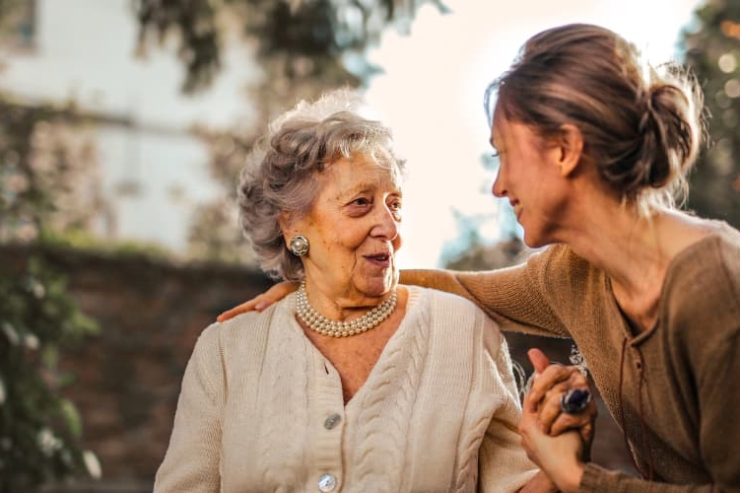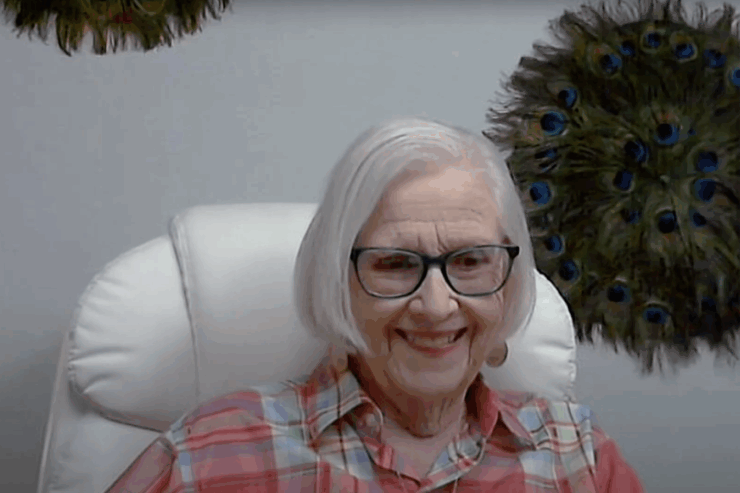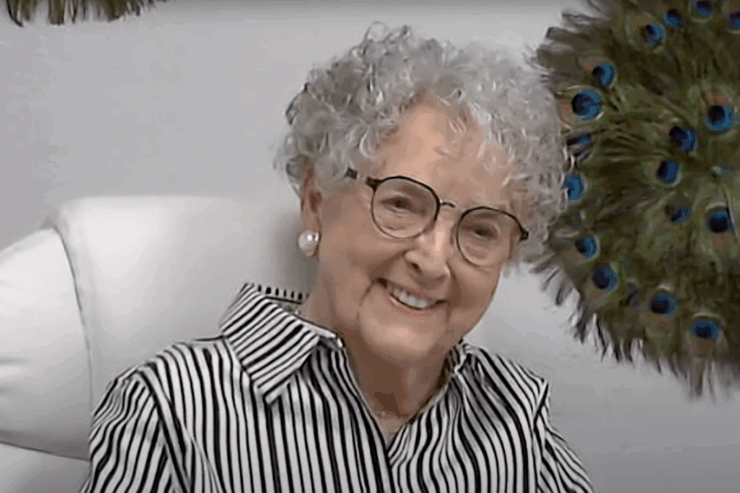
Signs to watch for when visiting aging loved ones
If you have older parents who live on their own, you want to make sure they’re safe and healthy in their living situation. You may be wondering how to gauge their independence without hurting their feelings or starting a potentially intrusive and uncomfortable conversation. How can you make sure their current living situation is safe for them and when might it be time to seek some domestic support?
The good news is, the holiday season is a wonderful time to check in on your aging parents and enjoy time together. Rather than forcing a conversation about their domestic future, you can get an honest look at their ability to live independently.
As you bring your older parents Christmas gifts or prepare to spend the holidays with aging loved ones, keep an eye out for these common signs that it’s time to think about extra support.
Community Matters At All Ages: Signs of Depression and Loneliness
One of the first things you want to look for when you visit your parents is signs of depression. Living alone can feel very isolating; when you combine that with the loss of independence that often accompanies aging, the likelihood of depression increases considerably. Symptoms and signs of depression can vary widely but some red flags include loss of interest in activities they once enjoyed, feeling abnormally tired and lethargic, issues with executive function, and elevated trouble with organizing and losing things.
Often, older adults will be less likely to share when they feel depressed. Our society tends to stigmatize mental health conditions and associate them with the younger generation. Your aging parents may conceal their feelings or avoid bringing up any issues they’re experiencing to avoid concerns. Thus, signs of depression in elderly people can be a little harder to spot. Keep in mind that depression can also manifest in physical symptoms, such as unexpected weight gain or loss, so encourage aging parents to seek support from a doctor if they have any unexplained symptoms.
Social isolation can be a major factor in depression among the elderly. Older people may struggle to maintain a social life, whether due to location, transportation issues, or decreased mobility. Ask your aging parents about their social life. Are they able to spend time with friends or engage in social activities? Thankfully, there are many ways to encourage your aging parents to stay connected to friends and family, even if they don’t live near them. You might consider teaching them how to video chat, and show them how to search for and join virtual activities. Help them connect with local senior centers and with groups on social media where they might find support and people their age who are in similar circumstances. Keep in mind that many senior living communities also offer social events that are open to the community. For example, Tribute at the Glen in Woodbridge, Virginia is one of many Cogir Senior Living communities that offer several free activities each month for non-resident seniors to attend, such as musical performances, holiday parties, outdoor festivals, and opportunities to work with local charities.
Helping your parents connect with others might be just what they need to help curb their feelings of loneliness. You might consider looking into a senior living community, where they will have easy access to frequent group activities and individuals who share similar interests. If you feel like they need additional mental health support, encourage them to reach out to their doctor.
Noticing Increasing Forgetfulness? Early Signs of Dementia to Keep in Mind
Everyone forgets a phone number or loses their keys from time to time — and getting older can make this even more common — but when someone is suffering from dementia, memory loss and other symptoms can present a serious risk to physical safety and health.
Dementia can describe a broad range of conditions, and among older people, the most common type is Alzheimer’s disease. People aged 65 and above are particularly susceptible to this disease, which affects about 5.8 million Americans. The parts of the brain involved in memory and emotion are affected first, which is why forgetfulness and apathetic behavior are usually the first signs of Alzheimer’s. Many people also begin to struggle with planning or organizing, which can make it challenging to prepare food, take medications, or keep a clean and safe household.
While Alzheimer’s can be challenging in its psychological effects, it also poses a physical risk. The loss of visual and processing skills could lead to injuries, malnutrition, and other potentially dangerous issues. What are signs of Alzheimer’s onset, and how can the most meaningful symptoms be differentiated from typical forgetfulness? According to the Alzheimer’s Society, there are several early signs of dementia to keep in mind, ranging from memory loss and impaired judgment to changes in personality. It is important to pay close attention and take early action to help your loved one adjust to the changes in a safe and healthy way.
Several of these symptoms overlap with symptoms and signs of depression, so you may find it difficult to assess on your own. It is always a good idea to encourage your loved one to seek medical care. If they are reluctant, you can try framing it as an annual checkup for their overall health, which might feel more approachable to them. Educate them on the many health benefits of getting a regular checkup after age 50, and encourage them to specifically ask to be assessed for Dementia and Alzheimer’s, as not all doctors will conduct these tests routinely during regular checkups.
There are some things you can look out for as you and your aging parents enjoy holiday traditions together. Ask them to reflect on the past year. Pay attention to their level of engagement and awareness. Are they struggling to follow the conversation? Do they seem to have trouble forming new memories or recalling recent events? If it seems like a parent has undergone a significant personality change or lost interest in activities they usually enjoy, encourage them to talk to a doctor or a professional.
Loss of Independence: When to Consider Additional Support for Daily Living
The holidays can be a busy time, and it’s easy to forget things or lose track of what day it is. However, early signs of dementia are more than temporary forgetfulness or moodiness. If your older parents are behaving differently or struggling to understand where they are or even what time of year it is, it may be time to consider domestic support to care for your loved one.
As you visit older parents over the holidays, notice other signs that they may be having difficulties living independently as they age. Don’t be afraid to ask questions: are they eating a healthy, balanced diet, or do they skip meals or binge? Are they maintaining the household or do they struggle to remember or perform critical tasks or sanitation? Do they mention difficulties driving or getting around? Look out for new dents or scratches on their car. These could indicate vision or spatial-processing issues that make driving unsafe. If some of these symptoms are present, you can teach them alternative ways of getting around and maintaining as much independence as possible. Help them learn to use rideshare or taxi services to get around. Teach them about grocery and meal delivery services, and even create meal plans with them. This might help them maintain their independence, but modify it in a way that is more safe for them.
If you notice signs that your loved ones are no longer safely living alone, whether they have early signs of dementia or just need a better social life, it may be time to consider a new living situation. A quality living community can provide the support and care your older parent needs to live confidently and safely.
At Cogir Senior Living, we offer multiple services, including independent living, assisted living, CadenceCONNECTIONS care, memory care, and more. We provide a full-service approach that includes both social and physical activities to help our residents enjoy thriving lifestyles. If you believe your loved one needs extra care and support, call today to schedule a tour of one of our modern aging communities and talk to one of our caregiving experts.



